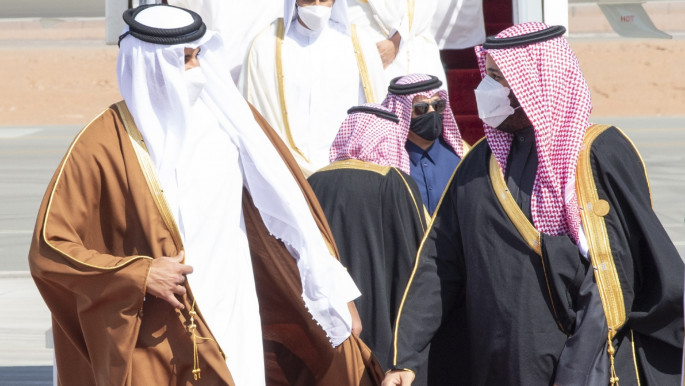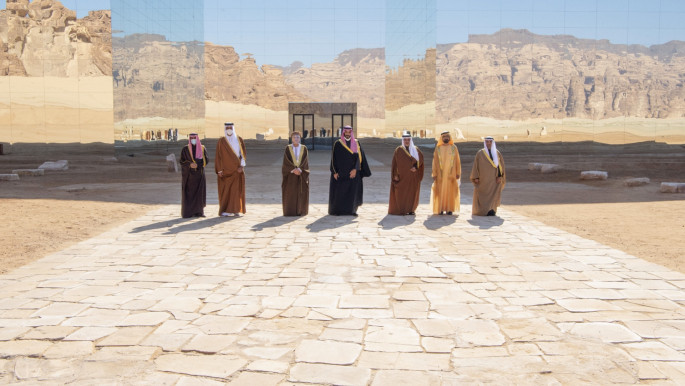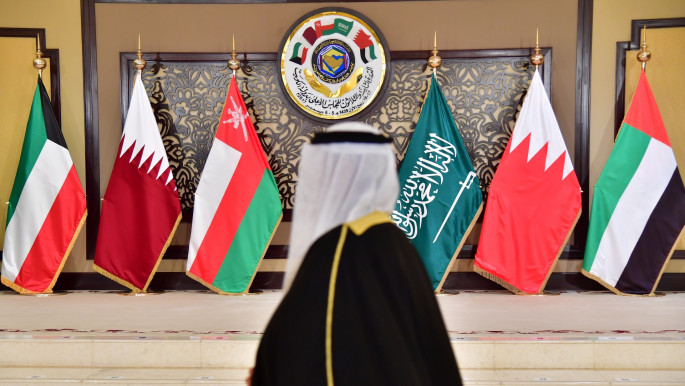Where does Gulf reconciliation leave the UAE?
This historic breakthrough provides the outgoing US administration with a chance to claim one more diplomatic victory.
There is no denying that this bitter dispute ended on terms that were highly favorable to Qatar. Throughout the three-and-a-half-year siege of Doha, Qatar maintained its independence as a nation state without relinquishing any sovereignty.
The blockading states did not achieve any of their goals from 2017, which they listed in the 13 demands presented to Doha as an ultimatum during the outset of the crisis. That Qatar had to change no pillars of its foreign policy in exchange for an end to the crisis informs a narrative that Doha "won" the Gulf crisis.
Is Abu Dhabi resisting Gulf reconciliation?
It is safe to conclude that out of all those in the anti-Qatar bloc, the United Arab Emirates (UAE) was the least pleased about the boycott of Doha coming to an end. Abu Dhabi's fears of Islamism and pluralism across the Arab region have made its anti-Qatar position more rigid and ideological than those of other blockading states. The Arab Gulf States Institute in Washington's Hussein Ibish wrote, "Left on its own, the UAE probably would have continued the boycott until Qatar agreed to truly reshape its foreign policy with regard to Islamism."
 |
Only time will tell whether the Al Ula accord leads to reconciliation between all four blockading states and Qatar, or rather a bilateral rapprochement between Riyadh and Doha |  |
Many Middle East experts are asking where this month's Gulf Arab summit will leave Abu Dhabi. What remains to be seen is whether the Al Ula accord leads to reconciliation between all four blockading states and Qatar, or rather a bilateral rapprochement between Riyadh and Doha.
When WAM, the UAE's state-run news agency, reported on this month's Gulf Arab reconciliation, it cited a Gulf News editorial which said that reconciliation with Doha would advance the "interest of the Gulf people and unity of the GCC" and that the Al Ula summit is "hopefully the beginning of the end of this crisis."
The UAE's Minister of State for Foreign Affairs, Anwar Gargash, took to Twitter to express his support for the "historic summit par excellence in Al Ula, through which we restore Gulf cohesion and we are keen to ensure that the security, stability and prosperity of our countries and peoples are the first priority."
 |
|
| Read more: Qatar crisis explained: As Gulf states end rift, how did we get here? |
During the sealing of the Al Ula deal, Gargash said to CNN that the initial 13 demands from the blockading states were a "maximalist negotiating position." Two days later, he gave a briefing in which he clarified that his country would implement "practical measures of airlines, shipping, and trade" with Qatar within a week of the Al Ula accord. The following day, WAM reported that the UAE would open its land, sea, and air entry points to Qatar.
Despite this significant progress, Gargash did explain that the restoration of full-fledged diplomatic ties would require more time due to sensitive issues such as Doha's relations with Ankara, Tehran, and Islamist factions. As he put it, "Some issues are easier to fix and some others will take a longer time."
Reflecting on a 'failed Emirati policy'
Regardless, Abu Dhabi's decision to, at least partially, climb down was significant. Abu Dhabi re-opening economic relations with Qatar marks the "first formalized reflection of a failed Emirati policy," argued Rami G. Khouri, an adjunct professor of journalism at the American University of Beirut. "The failure is enshrined in a diplomatic document without actually saying so. Let's hope that this is a turning point in the foreign policy making process of Arab countries."
 |
What remains to be seen is whether the UAE will set aside the most maximalist and ideological aspects of its foreign policy |  |
What remains to be seen is whether the UAE will set aside the most maximalist and ideological aspects of its foreign policy in other areas in order to promote regional stability and Gulf Arab unity in the face of various other threats such as the global Covid-19 pandemic, climate change, and friction between Iran and its regional adversaries.
It will be important to see how Abu Dhabi approaches Turkey. Whereas Egypt's recent diplomatic engagement with Libya's Government of National Accord (GNA) suggests that Cairo might be willing to strike a more compromised position vis-à-vis the Tripoli-based government and its sponsors in Ankara, it remains to be seen whether Abu Dhabi would accept a political solution that accommodates the GNA.
Experts such as the Geneva-based Global Initiative's Jalel Harchaoui don't believe so. He recently told The New Arab that "the UAE will not ever abandon its attempts to make Turkey's presence in Libya costly, painful, and unsustainable."
 |
|
| Read more: How the GCC reconciliation deal could reshape the region's power balance |
Other important variables in the equation pertain to how UAE-influenced state and non-state actors in the Middle East and Africa react to this month's Gulf Arab summit. Would Mauritania's government, Libya's Tobruk-based House of Representatives (HoR), and Yemen's Southern Transitional Council (STC), which have all been hostile to Qatar in recent years, tone done their anti-Qatar rhetoric to support the Al Ula agreement?
Samuel Ramani, a doctoral researcher at Oxford University, maintains that the HoR and STC's positions vis-à-vis Doha would be a strong indicator of how willing Abu Dhabi is to resolve its rift with Qatar. Perhaps the Emirati leadership will continue pressuring these actors to maintain a firm stance against Doha. If so, that would demonstrate how far away the Emiratis and Qataris are from re-establishing brotherly relations.
In a larger geopolitical picture, the Al Ula summit raises questions about the UAE's leverage in the region, specifically Abu Dhabi's ability to lead a coalition of Arab states against the Ankara-Doha alliance. Given that the blockading states essentially abandoned their 13 demands, which included the closure of the Turkish-Qatari military base, the Emiratis must contend with a Turkish military presence in the GCC.
 |
Other important variables in the equation pertain to how UAE-influenced state and non-state actors in the Middle East and Africa react |  |
For officials in Abu Dhabi, this is a tough pill to swallow. If Saudi Arabia manages to improve its relationship with Turkey throughout 2021, it will be important to monitor how the Emirati leadership responds. To be sure, Abu Dhabi, which sees Turkey as an expansionist power threatening Arab states, does not want to see a Saudi-Turkish rapprochement.
Looking ahead, it is easy to imagine the Emirati leadership continuing to have deep-rooted concerns about Qatar into 2021 and beyond. Officials in Abu Dhabi fear various aspects of Doha's foreign policy, which resulted in the UAE withdrawing its envoy to Qatar from March to November 2014 and severing economic and diplomatic relations in June 2017.
 |
|
| Read more: Biden as president: Winners and losers in the Gulf |
It is a safe bet that Abu Dhabi will continue perceiving Qatar's independent policies, which include maintaining relations with various Islamist groups, an alliance with Turkey, and outspoken media outlets, as a threat to the UAE and its attempts to shape the GCC's collective policies.
Although the outcome of this month's summit in Saudi Arabia constituted a historic breakthrough, it merely addressed a symptom of the GCC's Qatar rift without resolving any of its root causes. How Abu Dhabi moves forward in terms of dealing with Doha's regional policies raises questions which can't yet be answered.
No one can say that Abu Dhabi will never take any diplomatic or economic actions against Qatar again. The UAE driving a third GCC crisis down the road is a real possibility, especially if the GCC states fail to establish proper mechanisms for verifying the signatories' compliance with the Al Ula declaration.
Giorgio Cafiero is the CEO of Gulf State Analytics, a Washington, DC-based geopolitical risk consultancy.
Follow him on Twitter: @GiorgioCafiero



